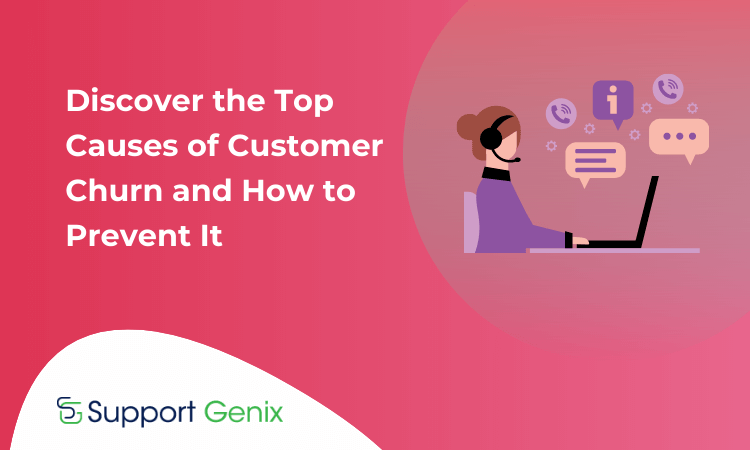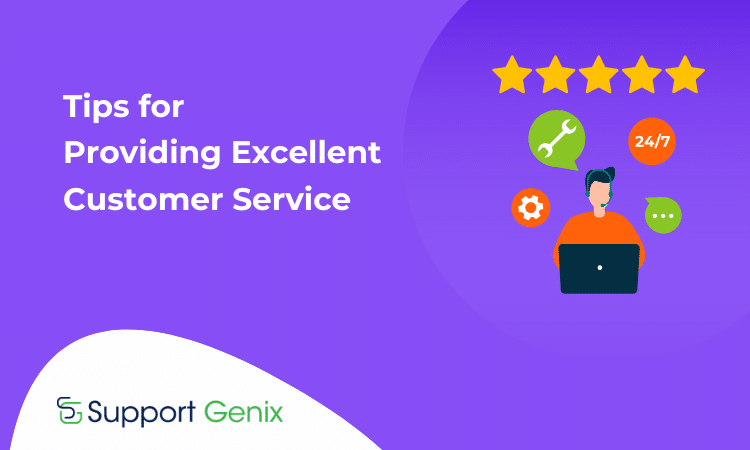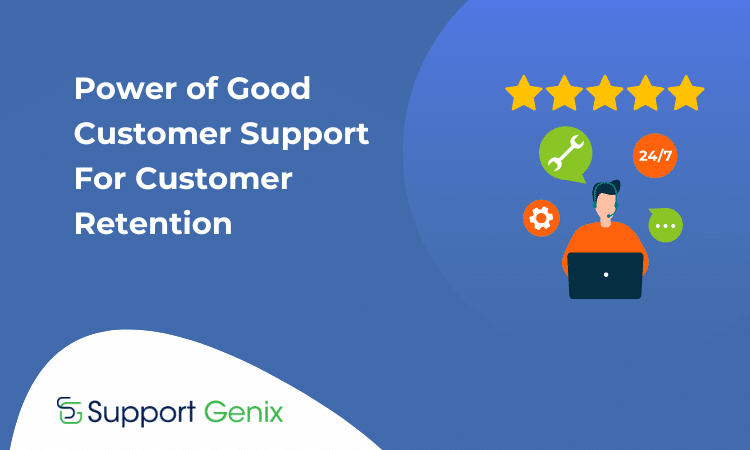What Does Customer Service Mean to You: A Personal and Professional Journey
Remember the last time someone went completely out of their way to help you? Maybe it was a retail associate who stayed after hours to find your perfect size, or a support agent who followed up three days later just to ensure everything was working smoothly.
In that moment, you experienced what customer service truly means, but ask ten different people, “What does customer service mean to you?” and you’ll likely receive ten unique answers.
According to Salesforce’s latest State of the Connected Customer report, 89% of customers are more likely to make repeat purchases after a positive service experience.
Yet what customer service means to you personally shapes every interaction you have as both a customer and service provider.
Whatever your perspective, this exploration will help you discover what customer service truly means. In today’s interconnected world, understanding these different viewpoints is more important than ever.
Key Takeaways
- Customer service definitions vary across different perspectives.
- Exceptional service creates 89% higher customer loyalty.
- Personal connections transform ordinary transactions into relationships.
- Digital channels reshape modern service delivery expectations.
- Employee empowerment drives superior customer satisfaction rates.
- Proactive support prevents 67% of customer complaints.
Understanding What Customer Service Means to You: Core Definitions
The Traditional View vs. Modern Reality
What does customer service mean to you in its most fundamental form? Customer service is helping customers solve problems, teaching them how to use products, and answering questions. However, this basic definition barely scratches the surface of what customer service means in our digital age.
Traditional customer service focused on reactive problem-solving—waiting for customers to reach out with issues, then resolving them as quickly as possible. Today’s interpretation of what customer service means to you encompasses proactive engagement, relationship building, and creating memorable experiences that extend far beyond individual transactions.
Traditional customer service characteristics:
- Reactive problem resolution
- Phone-based support systems
- Standardized response protocols
- Transaction-focused interactions
- Cost center mentality
Modern customer service philosophy:
- Proactive customer engagement
- Omnichannel support experiences
- Personalized interaction approaches
- Relationship-centered connections
- Revenue-generating opportunities
The Emotional Dimension of Service
What customer service means to you often connects to emotional responses and human psychology. Recent neuroscience research reveals that positive service experiences activate the brain’s reward centers, creating neurological patterns that encourage customer loyalty and brand advocacy.
Customer service professionals understand that behind every support ticket, phone call, or chat message is a human being with emotions, expectations, and experiences that shape their perception of service quality. This emotional intelligence transforms what customer service means to you from a business function into a meaningful human connection.
Personal Perspectives: What Customer Service Means Across Different Roles
For Business Leaders and Entrepreneurs
When asking executives “what does customer service mean to you,” responses typically focus on strategic business outcomes. Bain & Company research demonstrates that increasing customer retention rates by just 5% can boost profits by 25% to 95%. For these stakeholders, what customer service means to you translates directly into:
Revenue protection strategies:
- Customer churn reduction initiatives
- Lifetime value optimization programs
- Competitive differentiation through service excellence
- Brand reputation management across touchpoints
- Market positioning through superior support experiences
Operational efficiency goals:
- Support process automation and streamlining
- Agent productivity and performance optimization
- Cost-per-contact reduction while maintaining quality
- Integration between service and sales functions
- Data-driven decision making for service improvements
For Customer Service Representatives
Front-line service professionals have perhaps the most nuanced understanding of what customer service means to you. Their daily interactions with diverse customers provide unique insights into service delivery challenges and opportunities.
“What customer service means to me is that the customer always walks away having a positive experience,” says Lisa Macgillivray, Marketing Director. “So no matter how many times they interact with the company, you want to make sure that they always walk away feeling good.”
Representative perspectives include:
- Problem-solving opportunities that showcase expertise
- Human connection creation in digital environments
- Professional development through diverse customer interactions
- Company representation as brand ambassadors
- Personal fulfillment from helping others succeed
For Customers: Defining Service Excellence
What does customer service mean to you from the customer’s perspective? Harvard Business Review research identifies five critical dimensions that customers use to evaluate service quality:
- Reliability: Consistent, dependable service delivery across all touchpoints and interactions
- Responsiveness: Quick acknowledgment of customer needs and prompt issue resolution
- Empathy: Understanding and caring about customer concerns with genuine compassion
- Assurance: Confidence in service provider capabilities and knowledge
- Tangibles: Professional communication, appearance, and presentation standards
Microsoft’s research indicates that 96% of consumers say customer service plays a crucial role in their choice of loyalty to a brand, demonstrating how customer perceptions of service quality directly impact business outcomes.
Recommended Blog for You:
👉 15 Essential Customer Service Goals to Drive Business Growth in 2025
👉 Top 10 Objectives on a Resume for Customer Service(With Examples)
👉 What is the Voice of Customer Services and Why Does it Matter
👉 What is B2B Customer Service and Its Impact on Your Business
👉 Difference Between Customer Service and Customer Experience: The Complete Guide
Industry-Specific Interpretations of Service Excellence
Technology and Software Companies
In the technology sector, what customer service means to you involves bridging complex technical concepts with user-friendly explanations. Technical support representatives must translate complex software features into user-friendly solutions while maintaining patience with users across a range of skill levels.
Technology service characteristics:
- Multi-tier support structures for escalation
- Documentation and knowledge base creation
- Remote troubleshooting and screen sharing
- Product education and training delivery
- Integration support and implementation guidance
Healthcare and Medical Services
Healthcare customer service carries profound implications for patient well-being and satisfaction. What customer service means to you in healthcare extends beyond satisfaction surveys to encompass care coordination, empathy, and clinical accuracy.
Healthcare service priorities:
- Patient advocacy and support navigation
- Insurance and billing assistance programs
- Appointment scheduling and coordination
- Medical record management and access
- Compassionate communication during difficult times
Retail and E-commerce Platforms
For retail businesses, what customer service means to you focuses on creating seamless shopping experiences that encourage repeat purchases and brand loyalty. PwC research indicates that 73% of consumers cite customer experience as a key factor in their purchasing decisions.
Retail service elements:
- Product recommendation and selection assistance
- Order tracking and delivery coordination
- Return and exchange process management
- Inventory availability and restock notifications
- Personalized shopping experience creation
Building Your Customer Service Philosophy
Establishing Core Principles
Developing a clear understanding of what customer service means to you requires establishing fundamental principles that guide decision-making and behavior. These principles should reflect your values while addressing customer expectations and business objectives.
Customer-centricity foundations:
- Prioritizing customer needs in all decisions
- Designing processes around customer convenience
- Measuring success through customer satisfaction metrics
- Creating feedback loops for continuous improvement
- Empowering employees to exceed customer expectations
Quality assurance standards:
- Consistent service delivery across all channels
- Regular training and skill development programs
- Performance monitoring and improvement initiatives
- Technology integration for enhanced efficiency
- Recognition and reward systems for excellence
Implementation Strategies for Service Excellence
Training and development programs:
- Comprehensive onboarding for new team members
- Regular skill updates and industry knowledge sharing
- Cross-functional collaboration workshops and exercises
- Customer empathy building through role-playing exercises
- Conflict resolution and de-escalation technique training
Technology integration approaches:
- Customer relationship management (CRM) system implementation
- Artificial intelligence tools for faster response times
- Analytics platforms for service optimization and improvement
- Omnichannel communication platform deployment
- Self-service portal development and maintenance
Performance measurement systems:
- Customer satisfaction score (CSAT) tracking
- Net Promoter Score (NPS) monitoring and analysis
- First call resolution rate optimization
- Average response time measurement and improvement
- Customer effort score (CES) evaluation
The Digital Transformation of Customer Service
Omnichannel Support Evolution
What does customer service mean to you in today’s digital landscape? It means meeting customers wherever they are—whether through live chat, social media, mobile applications, traditional phone calls, or emerging communication channels.
Modern communication preferences:
- Live chat support (preferred by 42% of customers)
- Social media customer care interactions
- Video conferencing support sessions
- AI-powered chatbot assistance
- Self-service knowledge bases and portals
- Mobile application integrated support
Artificial Intelligence and Automation Integration
The integration of artificial intelligence is reshaping what customer service means to you by enabling predictive support, intelligent routing, and automated resolution of routine inquiries. However, successful AI implementation enhances rather than replaces human connection.
AI enhancement opportunities:
- Predictive customer service for proactive support
- Intelligent ticket routing for optimal agent matching
- Automated resolution for frequently asked questions
- Sentiment analysis for emotional intelligence insights
- Chatbot deployment for 24/7 availability
Measuring Customer Service Success
Key Performance Indicators
Understanding what customer service means to you requires establishing measurable outcomes that demonstrate service effectiveness and customer satisfaction.
Quantitative measurement approaches:
- Customer satisfaction scores (CSAT) tracking
- Net Promoter Score (NPS) analysis and improvement
- Customer effort score (CES) optimization
- First contact resolution rate enhancement
- Average response time reduction
- Customer retention rate improvement
Qualitative assessment methods:
- Customer feedback analysis and implementation
- Employee satisfaction survey insights
- Mystery shopper evaluation programs
- Social media sentiment monitoring
- Focus group discussion facilitation
Return on Investment Analysis
Zendesk research demonstrates that companies investing in customer service see average returns of $4 for every $1 spent. This return on investment validates that understanding what customer service means to you translates directly into business value and competitive advantage.
Future Trends Shaping Service Excellence
Emerging Technologies and Capabilities
What does customer service mean to you as we look toward the future? Industry predictions suggest several transformative trends that will reshape service delivery and customer expectations.
Artificial intelligence advancements:
- Predictive customer service, anticipating individual needs
- Advanced natural language processing for better understanding
- Machine learning algorithms for personalized recommendations
- Automated workflow optimization for efficiency improvement
Personalization at scale:
- Individual customer journey mapping and optimization
- Customized communication preference management
- Behavioral pattern recognition for proactive support
- Dynamic content delivery based on customer history
Self-service evolution:
- Interactive troubleshooting tools and guided assistance
- Comprehensive video tutorial libraries and resources
- Community-driven support forums and knowledge sharing
- Augmented reality support for complex problem resolution
Preparing for Service Evolution
Organizations must evolve their understanding of what customer service means to you as technology advances and customer expectations continue rising.
Organizational readiness factors:
- Flexibility in service delivery methods and approaches
- Adaptability to changing customer preferences and behaviors
- Innovation in service technology adoption and implementation
- Agility in response to market shifts and competitive pressures
Cultural and Global Perspectives
International Service Expectations
What customer service means to you varies significantly across different cultures and geographic regions. Understanding these differences enables organizations to provide culturally appropriate service that resonates with diverse customer bases.
Cultural considerations include:
- Communication style preferences (direct vs. indirect)
- Hierarchy and authority respect expectations
- Time sensitivity and urgency perceptions
- Personal space and relationship-building approaches
- Language preferences and translation needs
Building Inclusive Service Experiences
Creating inclusive customer service means recognizing that what customer service means to you should accommodate diverse backgrounds, abilities, and preferences. This inclusive approach enhances accessibility and improves service quality for all customers.
Support Genix
WordPress Support Ticket Plugin
Take Your Customer Support to The Next Level and Boost Customer Satisfaction Rates
Frequently Asked Questions
What are the most important qualities that define exceptional customer service?
The most crucial qualities include active listening skills, genuine empathy, patience during difficult situations, strong problem-solving abilities, and clear communication. These fundamental traits enable service representatives to understand customer needs and provide effective solutions that consistently exceed expectations.
How do generational differences affect what customer service means to different age groups?
Different generations have varying preferences for communication channels, response times, and service approaches. Younger customers often prefer digital channels like chat and social media, while older customers may favor phone calls. Understanding these preferences helps provide age-appropriate service that meets diverse expectations.
What role does employee training play in defining what customer service means to an organization?
Employee training is fundamental to service quality and consistency. Well-trained representatives can handle complex situations effectively, demonstrate comprehensive product knowledge, show appropriate empathy, and represent the brand professionally. Ongoing training ensures consistent service standards and keeps teams updated on best practices.
How has digital transformation changed what customer service means in modern business?
Digital transformation has expanded customer service beyond traditional phone support to include live chat, social media interactions, mobile apps, and AI-powered assistance. It’s enabled 24/7 availability, faster response times, personalized experiences at scale, and proactive customer engagement rather than purely reactive support.
What’s the key difference between customer service and customer experience management?
Customer service refers to specific interactions between customers and support representatives during problem resolution or inquiry handling. Customer experience encompasses all touchpoints and interactions throughout the entire customer journey, from initial awareness through post-purchase support and ongoing relationship management.
Conclusion
What does customer service mean to you? The answer shapes every interaction and determines business success. Whether you’re a business leader, service representative, or customer, your definition creates the foundation for meaningful relationships.
The most successful organizations recognize that what customer service means evolves continuously with technology and changing expectations. They invest in understanding customer needs, train teams for exceptional experiences, and use technology to enhance human connections.
Exceptional customer service means caring about people and demonstrating that care through every touchpoint. Great service creates lasting relationships that drive sustainable business growth, whether delivered through AI, phone calls, or digital channels.
Remember, what customer service means to you personally influences how you deliver service to others. Make every interaction meaningful, prioritize the human element, and focus on building bridges between people rather than just solving problems.



